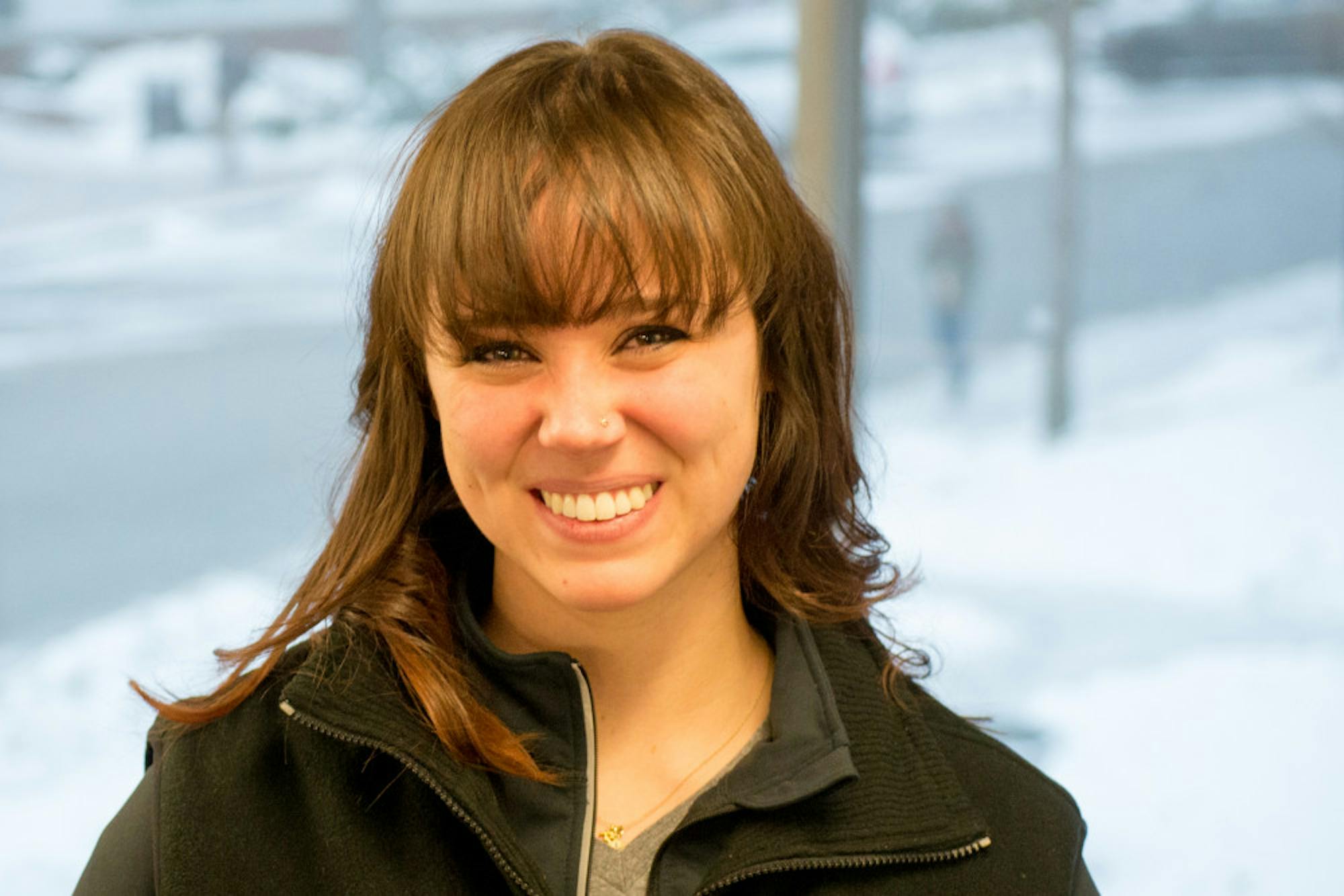Sorority recruitment is experiencing an upward trend, with 310 potential new members going through recruitment this semester, according to Panhellenic Director of Recruitment Victoria Sengstack. But although recruitment is up, the total number of new members is down, with about 48 new members per sorority, making the average number of women in sororities now 161 per chapter, according to Sengstack.
Sengstack credits the increased numbers of students participating in recruitment to the Panhellenic Council’s recent efforts to make Greek life more accessible for a wider variety of people.
“We are focusing on issues like LGBTQ women in Greek life and how we can make that easier and having those necessary conversations. We are also focusing on making recruitment more financially feasible. The attitude has changed to being much more open and honest and transparent about what is going on,” Sengstack said.
Director of Programming Neena Kapur added another perspective to the matter. According to her, the Panhellenic Council is aware that diversity issues are not being addressed, and plans to take significant action to change that this semester.
“There is an image that sororities are white, wealthy and heterosexual, and we realized this past semester that that is not being formally addressed ...We really aim to talk about the issues of race, sexuality and socioeconomic status in sororities in order to make people more aware that these are huge issues for sororities that need to be addressed ASAP," said Kapur.
In an effort to increase transparency, the Panhellenic Council put on a presentation during recruitment this semester to make sure that the financial aspect of sororities was clearly explained to potential new members, Sengstack said. According to Kapur, the large financial commitment of Greek life stands in the way of creating a space more open to women of different backgrounds. These financial commitments, and the way sororities address them, may have a direct connection with this year's fluctuating recruitment statistics.
Specifically, Kapur indicated that the straightforward presentation about costs may have contributed to more women dropping out of recruitment this semester.
“When the financial information is presented, many girls unfortunately realize that it is difficult to pay and that the payment plans and scholarships may not be able to cover what they need. Girls may have preemptively dropped because of costs,” she said.
Plans to address these and other issues are multifaceted, and include establishing a Panhellenic scholarship, instituting mandatory sensitivity training and holding social justice workshops within each sorority. This spring, the workshops will address race, gender, sexual identity and socioeconomic status, Kapur said. She also mentioned that the Panhellenic Council will be hiring an outside organization each year to teach sororities about dominant identities and oppressed identities.
Furthermore, Kapur added that the Panhellenic Council is also doing internal work to create several committees to ensure consistent discussion about these issues. For example, Director of Community Outreach Scheherazade Khan will create a group for queer women in sororities -- "Something that should have existed a long time ago but now exists, which is awesome and creates a nice space for support,” Kapur said.
Taylor Kennedy, chapter president of AOII, -- the first sorority to test out a workshop intended to call attention to potentially isolating ways that sorority women speak to each other, according to Kapur -- said that Students Acting for Gender Equality (SAGE) held a workshop with AOII last semester to talk about avoiding certain language that may make some women uncomfortable.
“We talked about creating an open and inclusive space to make everyone feel comfortable and how to open recruitment to people with different backgrounds and different sexual orientations. We need to make sure the space that we are creating is conducive to that,” Kennedy said.
Kennedy also said that sensitivity training was held for each of the sororities last semester to address the use of respectful language to make all women feel welcome.
According to Sengstack, these discussions are being held throughout the Northeast and contributing to rising interest in Greek life, while Kapur said she believes that Tufts is especially open to these discussions in Greek life.
“Tufts in general is a very white, heternormative space … but in many cases the Tufts environment does lend itself to increasing diversity in sororities. People are talking about race and LGBTQ rights, it is so predominant and so in your face that whether or not you are involved on campus, you have to know about it, you have to have heard," Kapur said. "It makes bringing this type of [social justice] program to the sorority environment that much easier."
Sorority recruitment numbers fluctuate amid increased diversity efforts

According to Panhellenic Director of Recruitment Victoria Sengtack, many regional colleges are engaging in discussions about diversity and Greek life.





